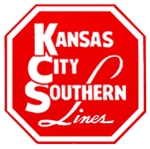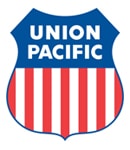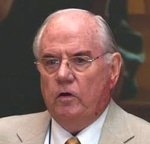BNSF reported a 22 percent increase in profit for the third quarter 2012 versus third quarter 2011, citing improved intermodal (trailers and containers on flat cars) and automotive traffic.
BNSF’s third quarter 2012 operating ratio of 68.3 percent was a significant improvement over the 71.7 percent for third quarter 2011. Operating ratio is a railroad’s operating expenses expressed as a percentage of operating revenue, and is considered by economists to be the basic measure of carrier profitability. The lower the operating ratio, the more efficient the railroad.
BNSF operates in 28 states and two Canadian provinces

CN’s third quarter 2012 operating ratio of 60.6 percent increased from 59.3 percent from third quarter 2011. Operating ratio is a railroad’s operating expenses expressed as a percentage of operating revenue, and is considered by economists to be the basic measure of carrier profitability. The lower the operating ratio, the more efficient the railroad.
CN is primarily a Canadian railroad. Its U.S. holdings include what were formerly Detroit, Toledo & Ironton; Elgin, Joliet & Eastern; Grand Trunk Western; Illinois Central; and Wisconsin Central.

CP’s third quarter 2012 operating ratio of 74.4 was an improvement from the 75.8 percent operating ratio for third quarter 2011. Operating ratio is a railroad’s operating expenses expressed as a percentage of operating revenue, and is considered by economists to be the basic measure of carrier profitability. The lower the operating ratio, the more efficient the railroad.
Canadian Pacific is primarily a Canadian railroad. Its U.S. holdings include Class I Soo Line and regional railroad Delaware & Hudson.

The CSX third quarter 2012 operating ratio of 70.5 percent was virtually unchanged from the 70.4 percent for third quarter 2011. Operating ratio is a railroad’s operating expenses expressed as a percentage of operating revenue, and is considered by economists to be the basic measure of carrier profitability. The lower the operating ratio, the more efficient the railroad.
CSX operates some 21,000 route miles in 23 states and the District of Columbia.

KCS’s third quarter 2012 operating ratio of 68.7 was a 2.6 percentage point improvement from third quarter 2011 and the best in company history. Operating ratio is a railroad’s operating expenses expressed as a percentage of operating revenue, and is considered by economists to be the basic measure of carrier profitability. The lower the operating ratio, the more efficient the railroad.
KCS operates some 3,500 route miles in 10 states in the Central and South-Central U.S., as well as Kansas City Southern de Mexico, a primary Mexican rail line.
Norfolk Southern reported a 27 percent decline in profit for third quarter 2012 versus third quarter 2011, citing reductions in coal and merchandise volume. The slump in coal shipments has resulted in employee furloughs.
NS’s third quarter 2012 operating ratio of 72.9 was a more than five percentage point increase over the third quarter 2011 operating ratio of 67.5. Operating ratio is a railroad’s operating expenses expressed as a percentage of operating revenue, and is considered by economists to be the basic measure of carrier profitability. The lower the operating ratio, the more efficient the railroad.
Norfolk Southern operates some 20,000 route miles in 22 states and the District of Columbia.

Union Pacific’s third quarter 2012 operating ratio of 66.6 percent was 2.5 percentage points better than third quarter 2011, and a 0.4 percentage point improvement from the previous record set in the second quarter 2012.Operating ratio is a railroad’s operating expenses expressed as a percentage of operating revenue, and is considered by economists to be the basic measure of carrier profitability. The lower the operating ratio, the more efficient the railroad.
Union Pacific operates some 32,000 route miles in 23 states in the western two-thirds of the U.S.

 Arbitrator Frank Quinn, well known to hundreds of UTU officers and members as a long-time educator at UTU regional meetings, a respected neutral in rail arbitration cases and as an author, has died at age 80.
Arbitrator Frank Quinn, well known to hundreds of UTU officers and members as a long-time educator at UTU regional meetings, a respected neutral in rail arbitration cases and as an author, has died at age 80.
 By John Risch,
By John Risch,